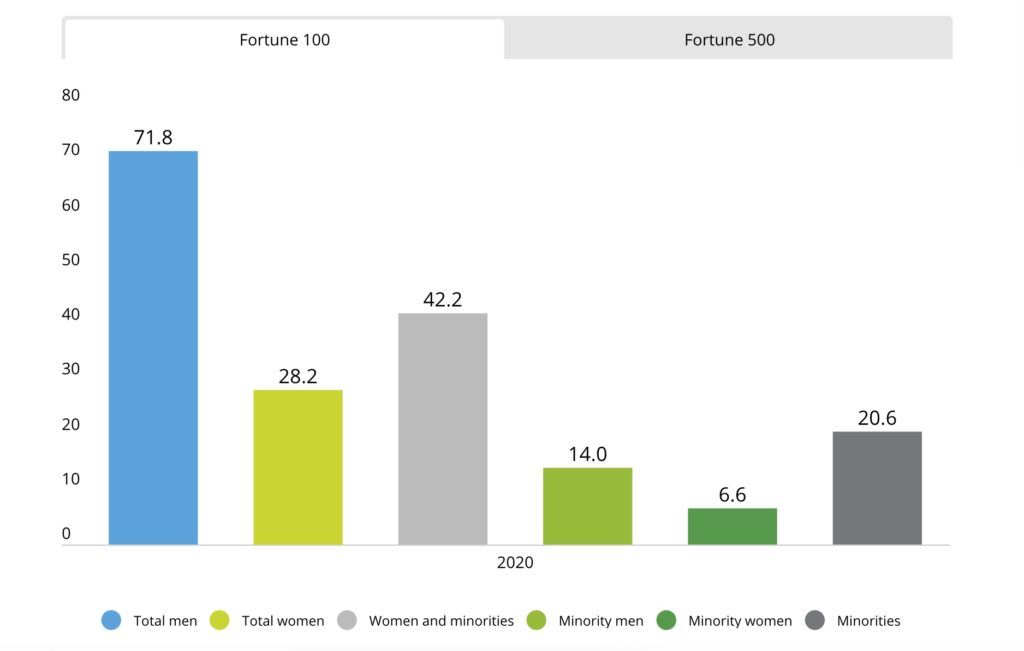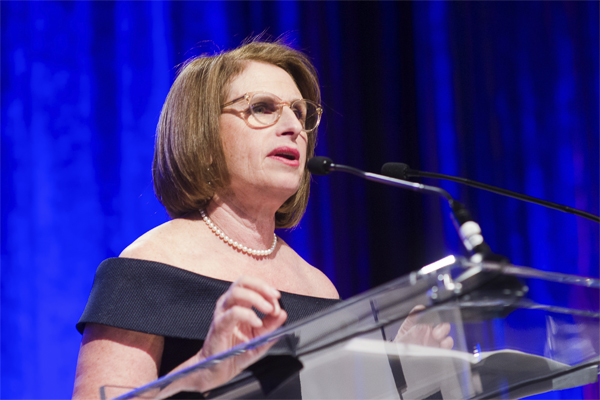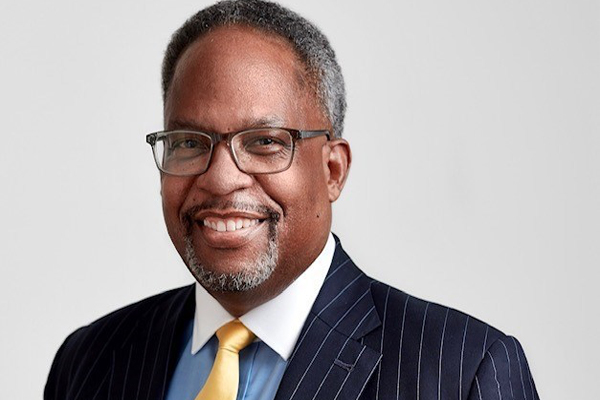We have to wait until at least 2074 before Fortune 500 board seats held by underrepresented groups and minorities reaches the ‘aspirational’ 40% diversity rate, set by the Alliance for Board Diversity (ABD), confirmed a new report.
The number of Fortune 500 companies with over 40% diversity on their boards is nearly four times higher than back in 2010; however, they are still decades away from reflecting the number of women/minorities in the US population, revealed the new ABD/Deloitte study.
“While we applaud the progress that businesses have made in increasing board diversity, we need to ensure representation is holistic and inclusive for all; not just for one segment of an underrepresented population,” stated Linda Akutagawa, ABD Chair and President, and CEO of Leadership Education for Asian Pacifics (LEAP). “Despite heightened focus on board diversity the past year, not a single Fortune 500 boardroom is representative of the population of the US.”
Although women and minorities have made more progress in board representation for the Fortune 500 between 2016 and 2020 than between 2010 and 2016, the average growth for minority representation on boards since 2004 is less than 0.5% per year, confirmed the sixth edition of the Missing Pieces Report: A Board Diversity Census of Women and Minorities on Fortune 500 Boards; a multiyear study published by ABD, in collaboration with Deloitte. Fortune 500 board representation for women and minorities continues to climb; up from 34% (1,929 board seats) in 2018 to 38.3% (2,253 board seats) in 2020. In fact, the number of companies with greater than 40% diversity has nearly quadrupled since 2010.
BOARD DIVERSITY INCREASE TOO SLOW
On a positive note, the data reveals that board diversity across the Fortune 500 is moving in the right direction; albeit very slowly. Key findings reveal that:
- African American/Black women gained 29 seats in 2020; an increase of 18.8% from 2018. Surprisingly, African American/Black men lost five seats in 2020, a decrease of 1.5% from 2018. African American/Black board members hold 8.7% (510 seats) as of June 30, 2020.
- Hispanic/Latino men gained 13 seats in 2020, an increase of 7.7% from 2018. Hispanic/Latina women gained 14 seats in 2020; an increase of 31.1% from 2018. Hispanic/Latino(a) board members hold 4.1% (240 seats).
- Asian/Pacific Islander men gained 33 seats in 2020; an increase of 22.3%from 2018. Asian/Pacific Islander women gained 28 seats; an increase of 45.9% from 2018. Asian/Pacific Islander board members hold 4.6% (270 seats).
- White women made the largest strides; gaining 209 board seats in 2020 for an increase of 20.6% from 2018.
- While 29 companies demonstrate 60% or greater women and minority representation, no companies in the Fortune 500 are representative of the US demographics; with benchmarks of 50% women, 13% African American/Black, 18% Hispanic/Latino(a), and 6% Asian/Pacific Islander per the most recent (July 2019) US Census Bureau.
- The study also showed that boards more frequently will pull from a pool of existing minority board members; instead of bringing in new directors. Two out of every five African American/Black board members serve on multiple Fortune 500 boards.

FORTUNE 100 LEAD ON BOARD DIVERSITY
Once again, as documented in previous Missing Pieces reports, the Fortune 100 companies are leading the way when it comes to board diversity. ABD’s initial goal for 40% of all board seats in the Fortune 500 to be occupied by women and minorities has now been met by Fortune 100 firms; and exceed the rate of board seats held by minorities in the Fortune 500, which was close to 18%. Statistics on board diversity in the Fortune 100 reveal that:
- In 2020, slightly more than 20% of board seats in the Fortune 100 were held by African American/Black, Asian/Pacific Islander, and Hispanic/Latino(a) members.
- The number of companies with greater than 40% diversity increased from 46 companies in 2018 to 53 in 2020. In other words, over half of companies have 40% of their boards composed of women and minorities.
- The total number of companies with over 50% diversity on their boards has nearly doubled in two years; from 10 in 2018 to 19 in 2020.
- Hispanic/Latino(a) women and Asian/Pacific Islander men achieved the largest percent increase in board seats; 27.3% (three seats) and 20.7 % (six seats), respectively. African American/Black women gained six seats as well, for an increase of 14.3%.
ACCELERATING BOARD DIVERSITY
The social justice movements of 2020 served as a wake-up call for many in corporate America; accelerating the focus for greater gender, ethnic and racial diversity in the boardroom. As many stakeholders across the US have demanded change, businesses are increasingly expected to serve the workforce and community; as well their bottom line. The business case and benefits of diversity – of background, experience, and thought – are evident; and “many companies have listened”, noted the report.
“The Missing Pieces report shows that while considerable progress has been made, and that companies are moving in the right direction in terms of equal representation on boards, there is still work to be done,” remarked Carey Oven, National Managing Partner, Center for Board Effectiveness; and Chief Talent Officer of Deloitte Risk & Financial Advisory at Deloitte & Touche LLP.
Catalyst’s President and CEO Lorraine Hariton agrees. “We recognise the pool of new board directors is more diverse than ever, but progress is slow; and will only improve when companies set intentional targets for gender and underrepresented groups on boards,” noted Hariton. “A diverse and inclusive board comes from breaking the habit of relying on the usual candidates; and tapping into various networks to identify board-ready candidates. Without this effort, companies risk falling behind in having a board positioned to address complex challenges.”

ADVANCING EQUITY & INCLUSION FOR ALL
The Executive Leadership Council’s (ELC) CEO Michael C Hyter shares Hariton’s sentiment. “Board diversity in the Fortune 500 is growing at a rate of 2% which is not quickly enough. On top of that, the recycle rate among Black directors remains high,” pointed out Hyter. “If corporations are serious about achieving true board diversity, they must be intentional about reaching outside of their traditional networks; to tap the plethora of qualified, Black board-ready executives who bring proven talent, innovation and leadership to the boardroom.”
Advancing racial equity and economic inclusion for people of all races, ethnicities, genders and sexual orientation is “crucial to ensuring the sustainability of corporate America’s creativity and innovation,” added LEAP’s Akutagawa. “Anti-Asian hate and systemic racism against communities of colour are direct attacks on our core belief that the strength of America lies in our diversity. It is not only urgent for the API community to mobilise the nation to #StopAAPIHate; it is just as important to challenge the corporate community to fill their open board seats to ensure an equitable representation of Asian and Pacific Islanders; and other diverse directors.”

REPRESENTATION MATTERS
The results make clear the “necessity of advocacy work” from groups like the Hispanic Association on Corporate Responsibility (HACR), highlighted HACR President and CEO Cid Wilson. “The report shows that representation for Hispanics and Latinos on corporate boards remains consistently low since 2004. Despite corporate America’s slow progress, I’m encouraged to see that, while still underrepresented, Latinas were the demographic with the second-highest increase in board seats of those surveyed. Our research with ABD will help guide HACR’s initiatives to achieve equity for Hispanics at the highest levels of corporate America.”
Representation matters, “and companies that are intentional in their selection of board leadership have proven successful in recruiting other strong diverse candidates”, added Diversified Search Group’s CEO Dale E Jones. “Diversified Search Group recognises that opportunity begets opportunity; and that leading by example is often the most effective way to bring about real and substantial progress.”
To build sustained long-term change for the better, “it will take leadership accountability to achieve equitable outcomes for all identities,” concluded Janet Foutty, Executive Chair of the Board at Deloitte US. “One of the best ways to do that is through measurement. That starts with disaggregating diversity data at all levels and assessing equity across all systems. With this data in hand, boards have a critical role to play in holding management accountable.”
Click here to download The Missing Pieces Report: The Board Diversity Census of Women and Minorities on Fortune 500 Boards, 6th edition. Another recent report found that board diversity progress worldwide is too ‘slow’ and ‘insufficient’. Click here to read more.







































